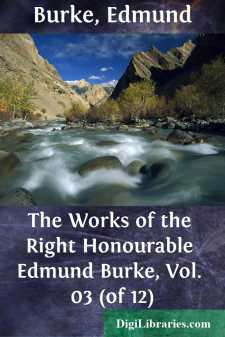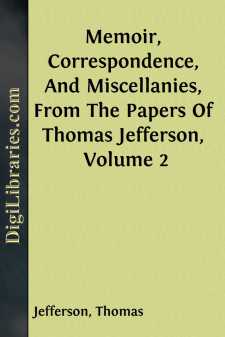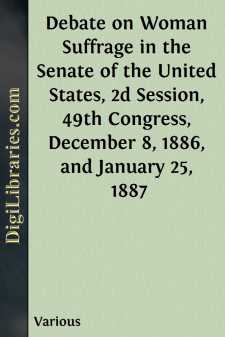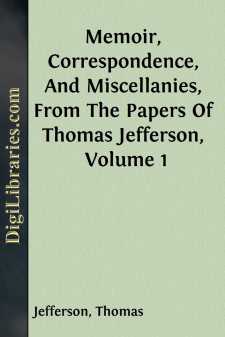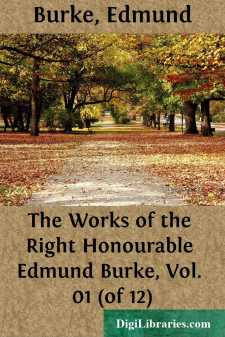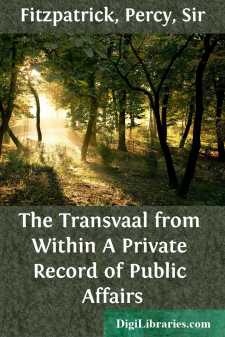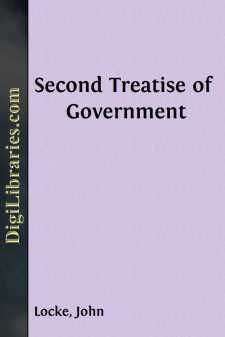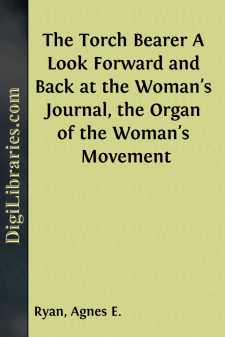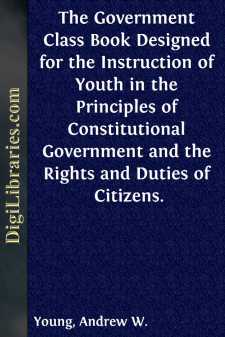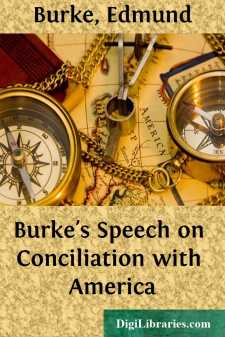Political Science
Political Science Books
Sort by:
by:
Edmund Burke
SPEECH. The times we live in, Mr. Speaker, have been distinguished by extraordinary events. Habituated, however, as we are, to uncommon combinations of men and of affairs, I believe nobody recollects anything more surprising than the spectacle of this day. The right honorable gentleman whose conduct is now in question formerly stood forth in this House, the prosecutor of the worthy baronet who spoke...
more...
by:
Thomas Jefferson
LETTER I.—TO RICHARD HENRY LEE, April 22, 1786TO RICHARD HENRY LEE.London, April 22, 1786. Dear Sir, In your letter of October the 29th, you desired me to send you one of the new lamps. I tried at every probable place in Paris, and could not get a tolerable one. I have been glad of it since I came here, as I find them much better made here. I now deliver one, with this letter, into the hands of Mr....
more...
by:
Various
Wednesday, December 8, 1886. On the joint resolution (S.R. 5) proposing an amendment to the Constitution of the United States extending the right of suffrage to women. Mr. BLAIR said: Mr. PRESIDENT: I ask the Senate to proceed to the consideration of Order of Business 122, being the joint resolution (S.R. 5) proposing an amendment to the Constitution of the United States extending the right of suffrage...
more...
by:
Thomas Jefferson
MEMOIR. January 6, 1821. At the age of 77, I begin to make some memoranda, and state some recollections of dates and facts concerning myself, for my own more ready reference, and for the information of my family. The tradition in my father's family was, that their ancestor came to this country from Wales, and from near the mountain of Snowden, the highest in Great Britain. I noted once a case from...
more...
by:
Edmund Burke
A LETTER TO LORD ****. Shall I venture to say, my lord, that in our late conversation, you were inclined to the party which you adopted rather by the feelings of your good nature, than by the conviction of your judgment? We laid open the foundations of society; and you feared that the curiosity of this search might endanger the ruin of the whole fabric. You would readily have allowed my principle, but...
more...
CHAPTER I. When, before resorting to extreme measures to obtain what the Uitlanders deemed to be their bare rights, the final appeal or declaration was made on Boxing Day, 1895, in the form of the manifesto published by the Chairman of the National Union, President Kruger, after an attentive consideration of the document as translated to him, remarked grimly: 'Their rights. Yes, they'll get...
more...
by:
John Locke
PREFACE Reader, thou hast here the beginning and end of a discourse concerning government; what fate has otherwise disposed of the papers that should have filled up the middle, and were more than all the rest, it is not worth while to tell thee. These, which remain, I hope are sufficient to establish the throne of our great restorer, our present King William; to make good his title, in the consent of...
more...
by:
Agnes E. Ryan
=The Torch Bearer= So wonderful are the days in which we are living and so rapidly is the canvas being crowded with the record of achievement in the woman's movement that it is time for readers of the Woman's Journal and for all suffragists to know somewhat intimately and as never before what goes on in the four little rooms in Boston where the organ of the suffrage movement is...
more...
by:
Andrew W. Young
Chapter I. Mankind fitted for Society, and for Civil Government and Laws. §1. Mankind are social beings. They are by nature fitted for society. By this we mean that they are naturally disposed to associate with each other. Indeed, such is their nature, that they could not be happy without such association. Hence we conclude that the Creator has designed men for society. It can not, therefore, be true,...
more...
by:
Edmund Burke
POLITICAL SITUATION In 1651 originated the policy which caused the American Revolution. That policy was one of taxation, indirect, it is true, but none the less taxation. The first Navigation Act required that colonial exports should be shipped to England in American or English vessels. This was followed by a long series of acts, regulating and restricting the American trade. Colonists were not allowed...
more...


